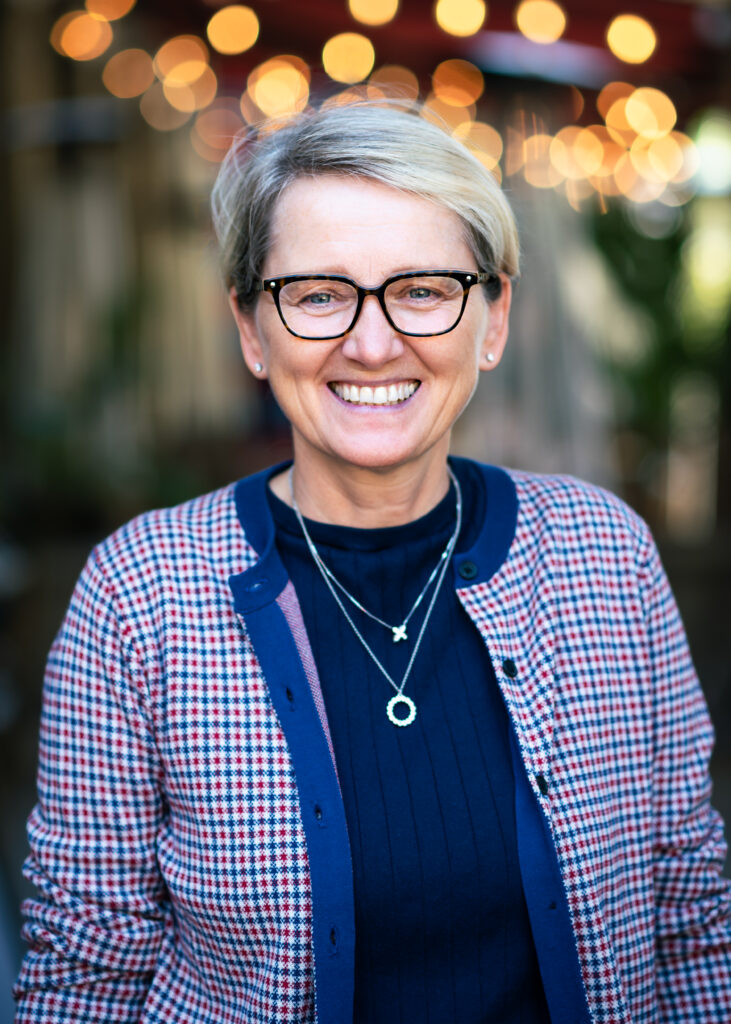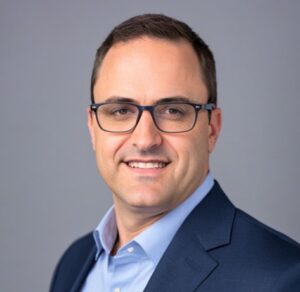The Art of Partnership: Podcast Episode 11 with Edith Bendermacher (NetApp)
Hear from Edith Bendermacher, Director of Globalization at NetApp, about the significance of enduring relationships to success in the language industry.

Tune in to episode 11 of Welocalize Presents as regular host Louise Law welcomes Edith Bendermacher, Director of Globalization at NetApp, GALA Board Member, and Program Director at Women in Localization.

With over 13 years of collaboration, NetApp and Welocalize have forged a strong client/vendor partnership that has grown (and weathered a few storms) over several industry and technological transformations.
Edith shares invaluable insights into the essence of long-term partnerships (trust!), navigating the ever-evolving landscape of language services, and the balance between AI-enabled technologies and human expertise in developing impactful multilingual content.
Discover how NetApp’s technology-led approach, coupled with a commitment to human resources and a solid internal team, drives success to support NetApp’s globalization and global growth strategy. Gain a deeper understanding of the evolving dynamics in global communications and the transformative impact of AI on their future collaborations.
Highlights Include
- Significance of an enduring relationship for global success in the language industry.
- Managing the NetApp globalization programs and how to measure the success of multilingual content within large technology brands.
- Finding equilibrium between AI-enabled language technologies and workflows and the evolving role of human-in-the-loop.
- Exploring the shifting dynamics in global communication and content creation in an AI era.
Listen to more Welocalize podcasts HERE
Transcript
Louise Law: Hello listeners and welcome to the Welocalize podcast where we chat about are all things relating to global content, translation and multilingual communications.
I’m your host, Louise Law. And I’m joined today by Edith Bendermacher, who is the director of globalization at NetApp, and also a board member of GALA, and a program director for Women in Localization, who are 2 of the language industry’s excellent non-profit organizations. Today, we’re chatting about the importance of an enduring vendor/ client partnership, which is essential for global success. And, especially as we’re experiencing a real transformative time, pushed by AI.
Hi, Edith!
Edith Bendermacher: Hi, Louise, thank you for having me.
Louise Law: No problem. Thanks so much for joining us today! Do you think you could start by sharing with our listeners a little bit about your role at NetApp and your journey in the globalization industry?
Edith Bendermacher: My globalization journey started around 13 years ago. And actually, it started at NetApp. I was hired as a linguistic quality team lead and at that time I was overseeing 30+ linguistic reviewers who was scattered across the world in 15 locations. I was hired to help to streamline the processes and the workflows amongst all these linguists, and that was also the very first time where I started working with Welocalize.
This was where we were talking to the translators with the linguists. When they had any issues or any training they needed to provide. One thing led to another. Few years later I took over also managing the Localization Operations team that gave me an opportunity to start working with Welocalize on a more business level. I started to attend the QBRs and I started to understand the KPIs and all the work that Welocalize was doing in the back end for us. Then I became the leader of the globalization strategy team
And I am the director of globalization at NetApp. We work across all the different departments that we cover: Product, go-to market, any experience that our customers have with NetApp, we localize into up to 15 languages. We process around 100 million words per year across all the different platforms: Human translation, machine translation. That’s the scope of the work that I’m doing right now.
Louise Law: Wow! Pretty wide scope. We’ve had a longstanding partnership with Natap that has spanned over 13 years. Can you tell us about the significance of this enduring relationship that has contributed to NetApp’s global success. Can you give us a little bit of insight?
Edith Bendermacher: Sure, I think the relationship even started longer than 13 years, I think when I started, Welocalize was already one of our partners. We sustained this relationship because we’ve built it for a very long time, and I think it started with building trust. We have our challenges. We had also a lot of opportunities, and Welocalize was helping us through all these times.
You know, just knowing us for such a long time helps to speed up the overall process. Any innovation or any scalability we want to bring into our work is because of partners like Welocalize, knowing our terminology, knowing our brand allowing us also to build that relationship between translators and our linguistic reviewers.
Welocalize is an extension of our team. So, everything that we deliver is because of partners like Welocalize who help us with our work.
Louise Law: Yes and like any great relationships, there’s been ups and downs, and we weather a few storms, enjoy the highs and commiserate together, when things aren’t going as planned, right?
Edith Bendermacher: Yes, it’s trust. It’s all based on trust. And I think that is what also our internal teams expect of us that we work with providers. You know, who help us help us along. But also think of the goals we are trying to accomplish.
Louise Law: Could you give the listeners a little bit of insight into how you and NetApp manages its globalization programs? How do you measure the success of the multilingual content within the context of a large technology brand?
Edith Bendermacher: We have made a point to work across all the different departments at NetApp. We have relationships across every group to understand what their goals are and what they are trying to accomplish along the global customer journey.
Our deep understanding of the customer experience is helping us to be targeted and focused, and only localize what is really required. I wish I would have the budget to localize everything that we create in English, but that is not a possibility. Understanding the customer journey stages in in a very deep way has helped us to prioritize what content we localize. We also hear back from our customers and partners what is it that they require? And that 2-way conversation helps us to be strategic, but also just do the things that are really required.
Louise Law: Yeah. And it’s about how the customers are engaging with that content all around the world. That’s the indication of performance and success.
Edith Bendermacher: Correct.
Louise Law: As I mentioned before, we are in an AI driven content transformation era. You know, AI is changing how we create, manage and translate content. It’s exciting, but it’s also scary. How do you strike a balance? Between leveraging the AI enabled workflows and the language technologies like MT and the human expertise? What has been your experience so far?
Edith Bendermacher: Just like everyone else, we need to be part of the conversation. Obviously want to apply AI. It has a lot of great capabilities. We are in the conversation because AI promises also the translation piece to take care of it for us. We are also looking at AI from a scalability perspective. Is it something that we can build into our existing workflows? Is this something that maybe we built? We built with it a new workflow that will help us to provide the best customer experience. And I’m talking there about the integrations that we have with other groups within our within our company.
There is an opportunity to harness the goodness of AI. But of course, we also have to be cautious, and we also have to see that it doesn’t cannibalize our business. How do we really harness just the goodness of it, and don’t you know, don’t destroy or disturb some of the things that we already have in place, and that are working well.
Louise Law: Absolutely. How would you sort of how do you envisage, then, the future of global content? With AI – what do you think’s going to happen in the future?
Edith Bendermacher: It. It is a transformational time. We have to work across all the different groups and departments to understand. What are they doing with AI. It is not longer enough to say we can just do the translation for you. We have to think. We’re going to be included in the different conversations on the different solutions that AI gives us. For example, content creation. Right? It’s a big shift at the moment. How would we use AI to create content? How can we translate that content? Using that AI solution? And how will we deliver it to our customers? Are we thinking already how to create content in English, which is a shift for a globalization team that historically took the content that was created in English and then we translated it, right? This is just one example how shift is happening. Right while we are speaking, Louise.
To be cognizant of it. We have to realize, and we have to see. How can we be part of that conversation?
Louise Law: Absolutely. From what you know in terms of marketing teams, you know that creating, translating, and using the AI solution. It just means they can get to more markets, create more customer engagement in more, in more languages, by combining AI with power of the power of humans as well.
Edith Bendermacher: Correct. So, lots of work for us to do.
Louise Law: Yeah, it’s exciting, though. Cool. Thank you so much for sharing your insights and experiences with us. It’s been an absolute pleasure having you on the on the podcast. And the work that you do at NetApp and also in the other organizations within the language industry. It is always great to catch up with you. Thank you for joining us.
Edith Bendermacher: Thank you for having me.
 Siobhan Hanna
Siobhan Hanna Erin Wynn
Erin Wynn
 Nicole Sheehan
Nicole Sheehan Kimberly Olson
Kimberly Olson Matt Grebisz
Matt Grebisz Christy Conrad
Christy Conrad Chris Grebisz
Chris Grebisz Dan O’Brien
Dan O’Brien